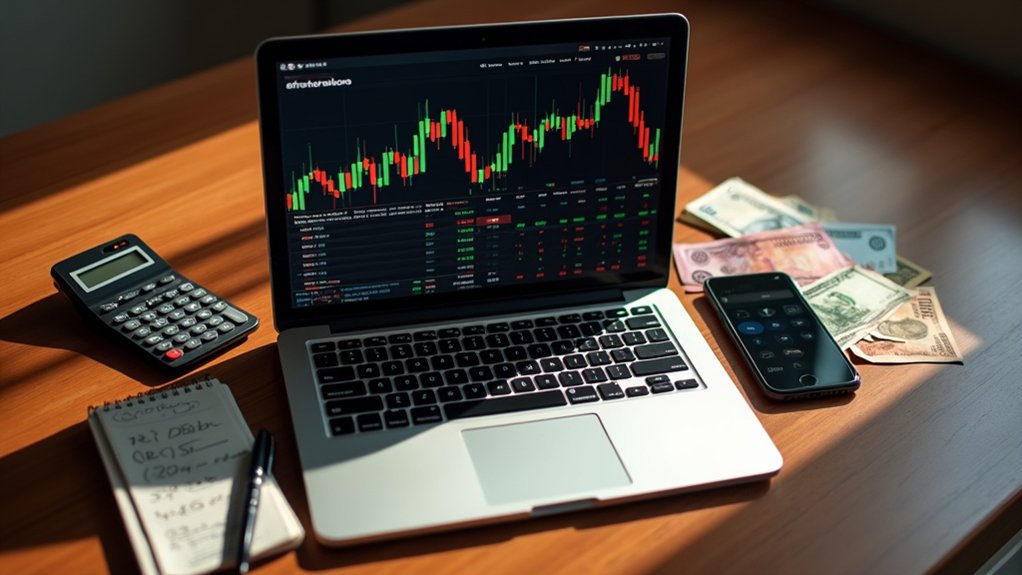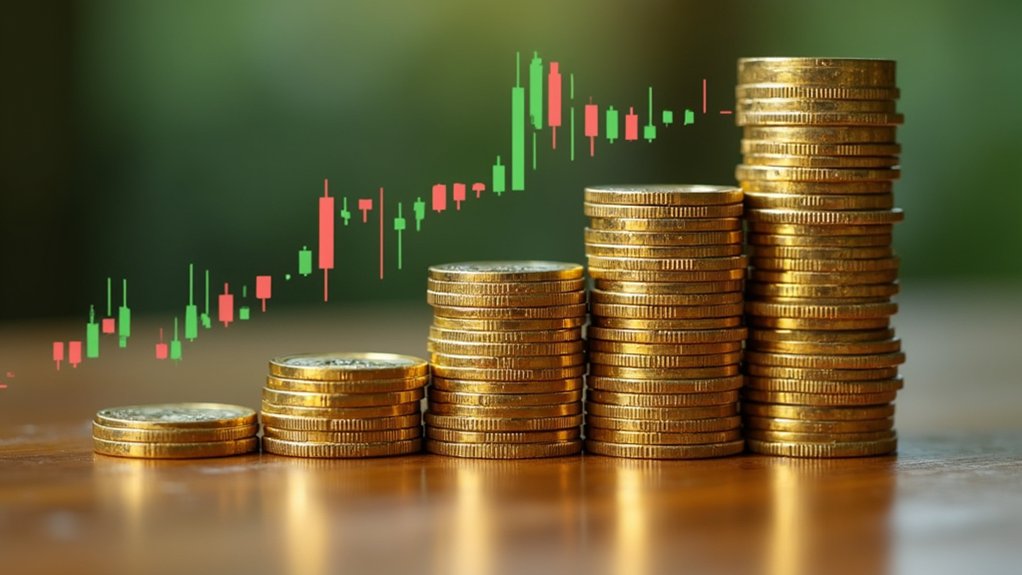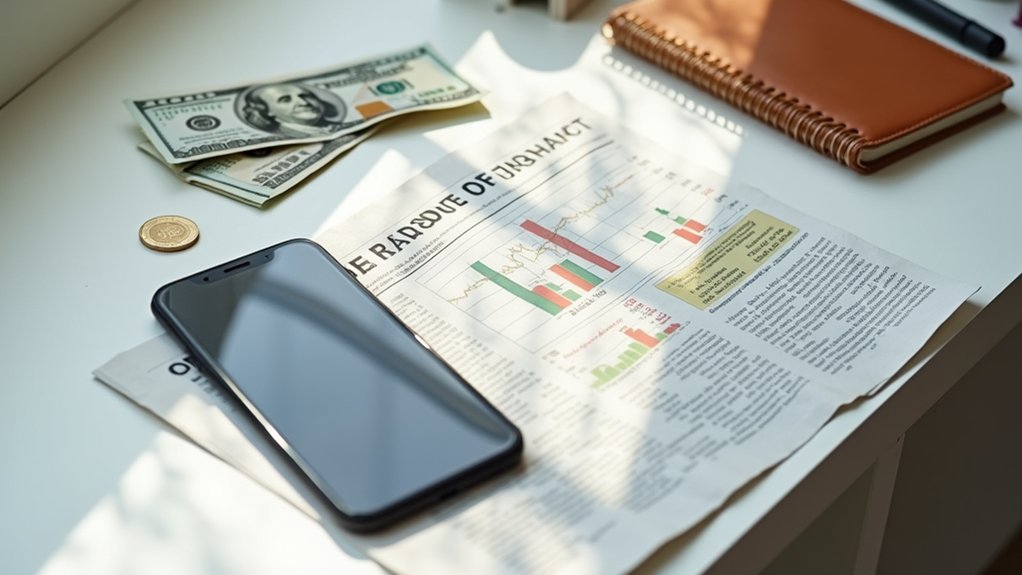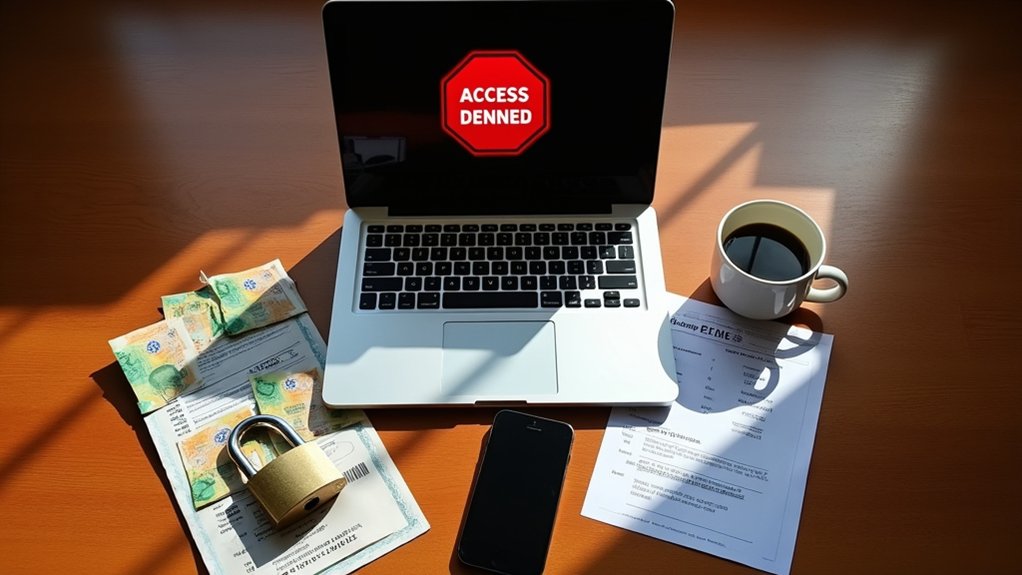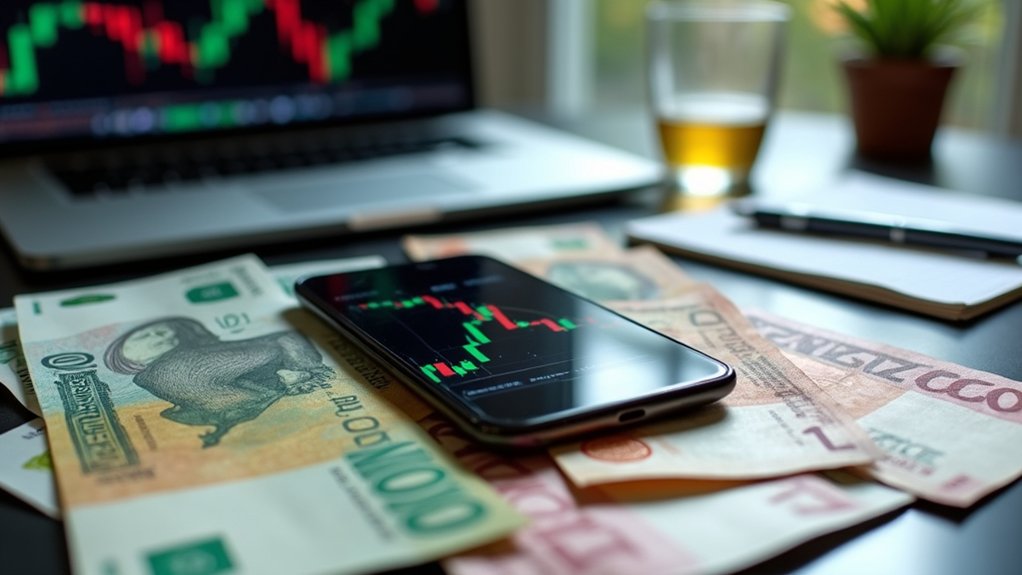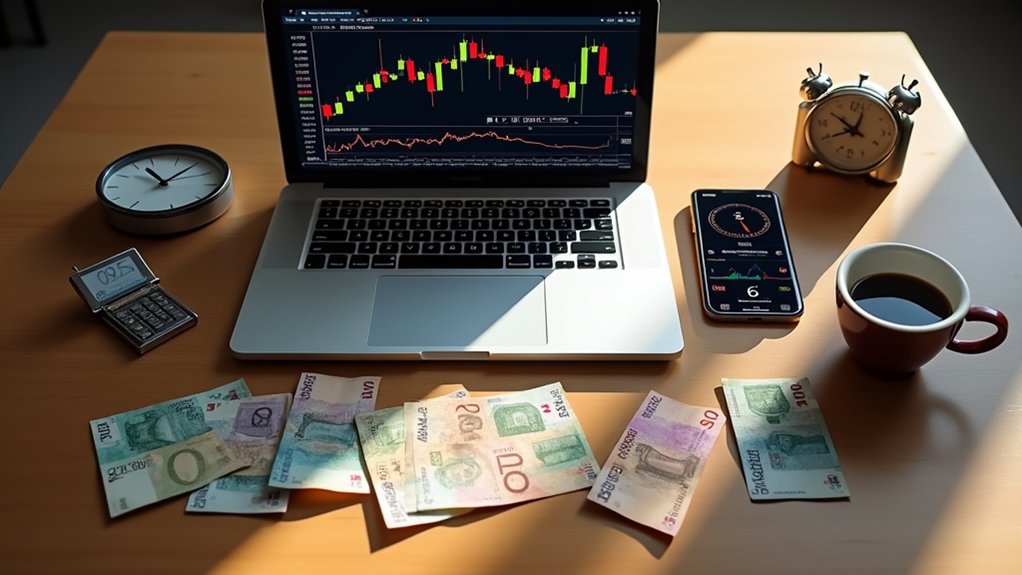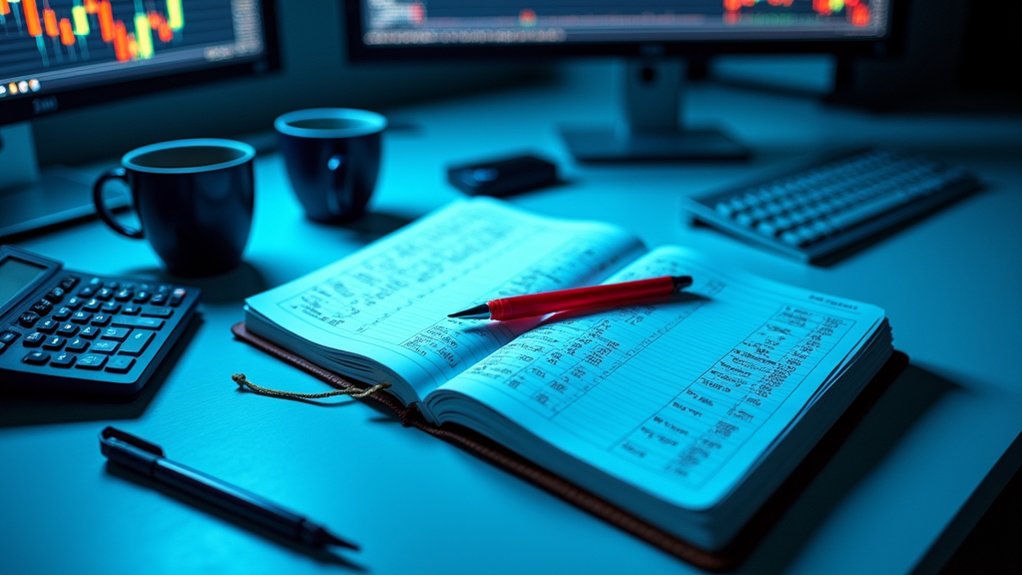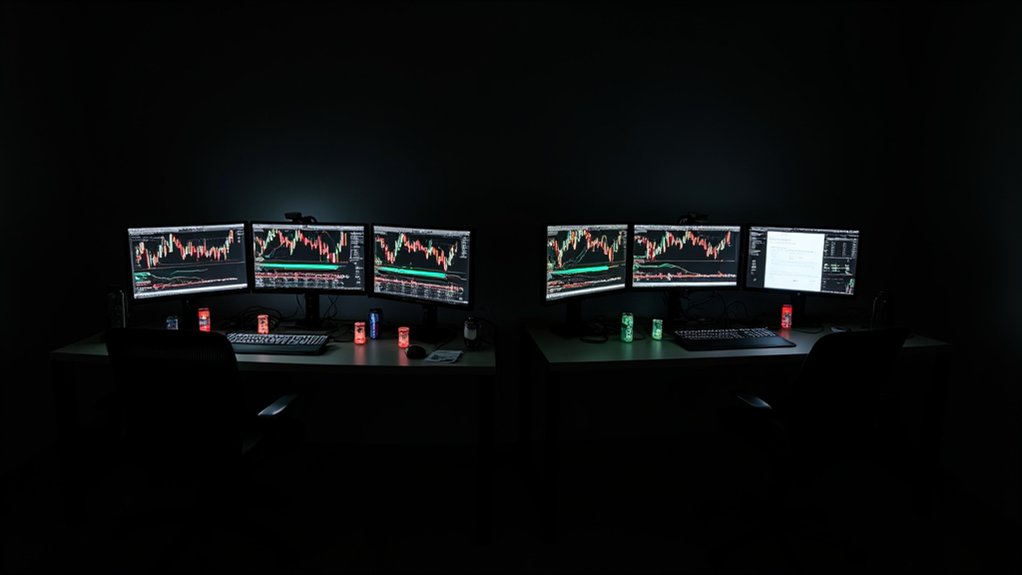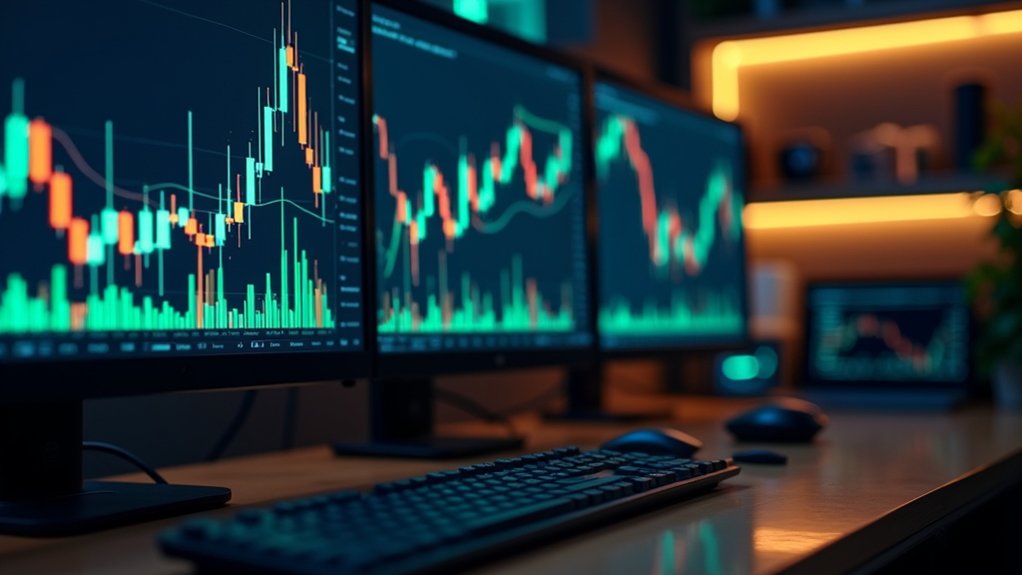Forex trading lets anyone buy and sell currencies in a $6 trillion-per-day global market that runs 24/5 across time zones. Beginners pick a currency pair, decide whether to buy or sell, and use leverage to control big positions with small deposits—sometimes 50:1 in Africa. Sounds easy. It's not. Overleveraging wipes out accounts fast, spreads eat into profits, and emotional trading kills discipline. Most newbies ignore risk management and chase losses until their money's gone. The basics matter more than most traders think.

Across Africa's 54 countries, from Lagos to Cairo, from Nairobi to Johannesburg, millions of people are discovering Forex trading—and most have no idea what they're actually getting into.
Most African traders jump into Forex chasing profits without understanding leverage, risk management, or how fast accounts can vanish.
Forex is the foreign exchange market. It's where currencies get bought and sold. Simple enough. The market operates 24 hours, five days a week, and it's massive—over $6 trillion traded daily. That's trillion with a T. Banks, dealers, big institutions, and retail brokers all participate. The market is decentralized and global, which sounds fancy but really just means there's no single exchange building somewhere.
Currency pairs are the basic unit. EUR/USD, USD/JPY, GBP/USD—these are the most traded. Each pair has a base currency and a quote currency. The price shows what the base is worth compared to the quote. A pip is the smallest price movement, usually 0.0001 for most pairs. Lot size defines trade volume. One standard lot equals 100,000 units of base currency, which sounds absurd until you realize leverage exists.
Leverage lets traders control large positions with small capital. Ratios up to 50:1 are typical across African brokerages. That's how someone in Accra or Kampala can move serious money without actually having it. The catch? Losses get magnified too. Fast.
Getting started requires a broker account. Regulation matters—finding a reputable broker in Africa isn't always straightforward given the patchwork of financial oversight from country to country. Trading platforms like MetaTrader are popular. Demo accounts exist for practice, and honestly, anyone skipping that step is asking for trouble. Opening a trading account involves following sequential instructions that typically include identity verification, funding deposits, and platform setup.
The bid/ask spread represents transaction cost—the difference between buy and sell price. It's how brokers make money off every trade, even the losing ones. Lower spreads translate to lower trading costs and more profit retention for the trader. Understanding exchange rates between currency pairs is fundamental to calculating potential profits and losses on every position.
Placing a trade involves selecting a currency pair, determining direction (buy if expecting a rise, sell if expecting a fall), setting position size, choosing order type, and executing. Sounds clean on paper. In reality, emotions kick in hard. Traders should monitor positions actively and close them according to their plan and strategy.
Risk management separates those who survive from those who don't. Stop-loss levels limit potential losses. Position sizing based on account size matters. Diversifying trades helps. Maintaining discipline after losses is critical but rare. A stop loss order automatically cuts losses when price reaches a specified level, preventing emotional decision-making during adverse market moves.
Common mistakes? Overleveraging wipes out accounts. Ignoring risk management does the same. Trading without a plan leads to impulsive disasters. Chasing missed moves usually backfires. Neglecting education guarantees poor strategy. Beginners should evaluate account features carefully before committing real capital to any platform.
The reality is stark: retail traders represent a tiny fraction of forex volume. Institutions dominate. The market is more volatile than equities, which means bigger profit potential and bigger loss potential. Margin requirements typically start at 2%, allowing large position control with minimal collateral. That's opportunity and danger wrapped together. Unlike stock markets that close for the night, forex trading hours span continuously across different time zones from Sydney to New York.
Common Questions
Can I Trade Forex Legally in My African Country With Local Currency?
Forex trading is legal in most African countries, though regulation varies wildly. South Africa's FSCA-regulated market is solid. Kenya's CMA licenses brokers. Nigeria has CBN and SEC oversight, but scams lurk everywhere. Ghana's still building frameworks.
Local currency accounts? Rare. South African brokers offer ZAR accounts frequently. Elsewhere—Kenya, Nigeria—traders typically convert to USD or EUR first. Most brokers operate in major global currencies, not local ones. Currency controls complicate things further in some nations.
Which Brokers Accept Mobile Money Deposits Like M-Pesa or MTN?
Several brokers take mobile money from African traders. Exness, XM (Official Site 🔗), AXI, Pepperstone, and Tickmill all accept M-Pesa—the king of mobile payments across Kenya, Tanzania, and Ghana. MTN Mobile Money works with most of them too, plus Airtel Money for deposits in Zambia, Nigeria, and Kenya. CMTrading supports EcoCash for Zimbabwean traders. FXPesa specializes in direct M-Pesa deposits. Minimum deposits start around $5 at XM. No bank account needed—just a phone and PIN.
How Do Internet Outages Affect My Open Trades and Stop Losses?
Open trades keep running on the broker's server during outages—the trader just can't touch them.
Stop losses already set usually execute because they live server-side, not on the laptop. But slippage happens if markets gap or move fast.
The real danger? Watching nothing while losses pile up. No modifications, no exits, no control.
A VPS keeps things running when local internet dies. Mobile hotspots work as backup.
Nigerian, Kenyan, and South African traders deal with this regularly—connectivity isn't guaranteed across the continent.
Are Forex Earnings Taxable in African Countries Like Nigeria or Kenya?
Yes, Forex earnings are definitely taxable in both Nigeria and Kenya—no escaping the tax man here.
Nigeria hits traders with a flat 10% capital gains tax on all profits. No exemptions.
Kenya takes a different route, treating Forex gains as ordinary income with progressive rates from 10% to 35%, depending on total earnings. First KSh 28,800 is tax-free, then the brackets climb.
Both countries expect full disclosure, even on offshore accounts.
What Happens if My Broker Blocks Withdrawals to My African Bank?
When a broker blocks withdrawals to an African bank, funds get stuck—sometimes for weeks.
Traders in Nigeria, Kenya, and South Africa face this often.
Reasons? Failed compliance checks, unlicensed brokers flagged by central banks, or suspicious transaction patterns.
Banks might freeze accounts entirely.
Regulators like SARB or Bank of Ghana can halt transactions.
Resolving it requires verification documents, broker contact, and sometimes switching to e-wallets or crypto.
Meanwhile, money sits locked, bills pile up, and frustration mounts.
Welcome to African forex reality.
